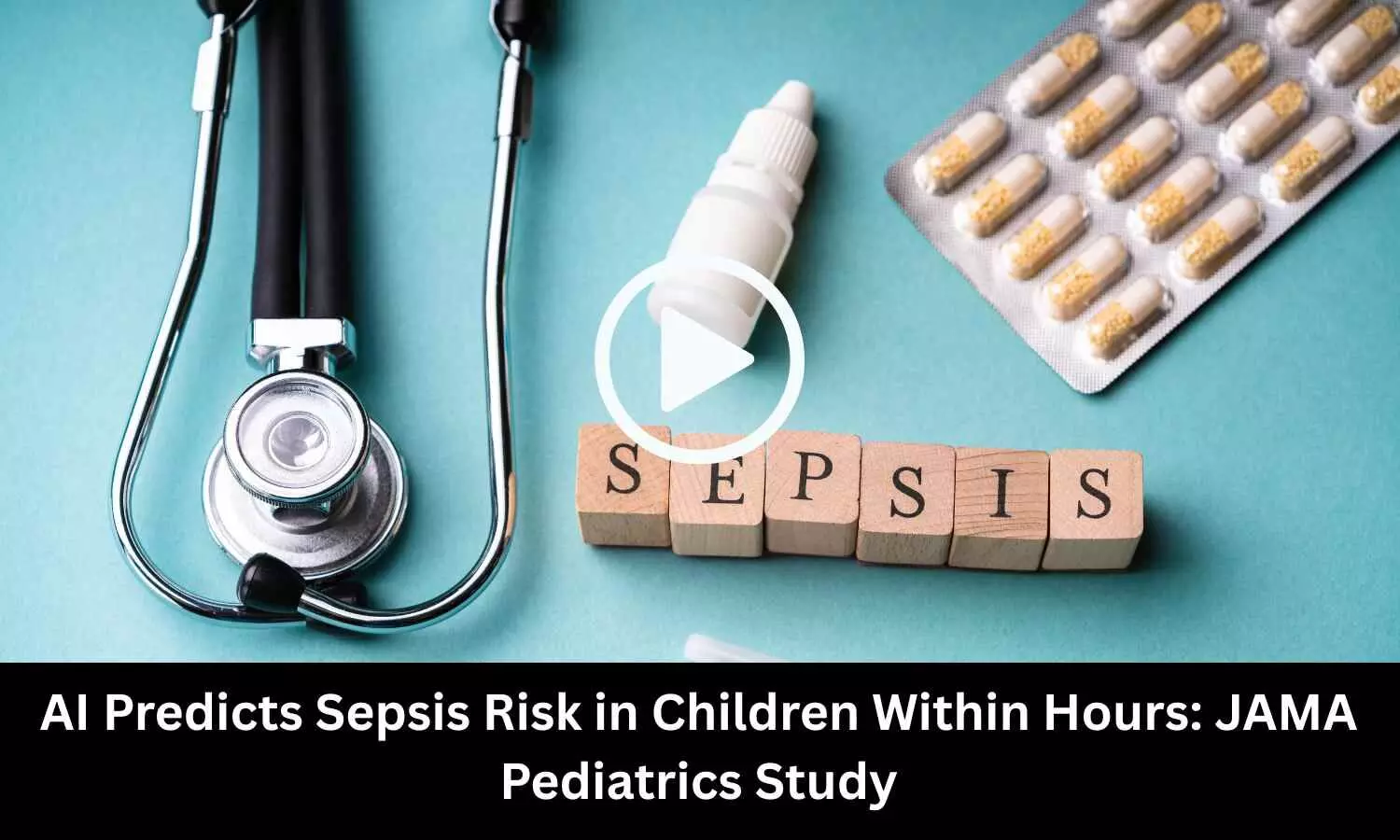AI Predicts Sepsis Risk in Children Within Hours: JAMA Pediatrics Study
- byDoctor News Daily Team
- 16 October, 2025
- 0 Comments
- 0 Mins

A study published inJAMA Pediatricshas revealed thatartificial intelligence(AI) models can accurately predict the risk ofsepsisin children within 48 hours of arrival at the emergency department. The multi-center research marks the first use of AI to predict pediatric sepsis based on the new Phoenix Sepsis Criteria. Sepsis, a life-threatening condition where infection leads to organ dysfunction, is a leading cause of childhood mortality worldwide. Because symptoms often escalate rapidly, early identification and treatment are crucial. In this new study, researchers developed and validated AI models that analyze electronic health record (EHR) data collected within the first four hours of a child’s emergency department (ED) visit, before any signs of organ dysfunction are apparent. The study drew on data from five major health systems participating in the Pediatric Emergency Care Applied Research Network (PECARN), giving researchers access to a large and diverse pediatric population. Importantly, the study excluded children who already showed signs of sepsis upon arrival, focusing solely on predicting future cases. This approach is designed to enable early, targeted therapies that have been proven to save lives. “The predictive models we developed are a huge step toward precision medicine for sepsis in children,” Dr. Alpern, lead author and Division Head of Emergency Medicine at Lurie Children’s, as well as Professor of Pediatrics at Northwestern University Feinberg School of Medicine. “These models showed robust balance in identifying children in the ED who will later develop sepsis, without overidentifying those who are not at risk.” Researchers emphasized the importance of avoiding unnecessary aggressive treatment in low-risk children, while enabling faster care for those at true risk. “We evaluated our models to ensure that there were no biases,” said Dr. Alpern. “Future research will need to combine EHR-based AI models with clinician judgment to make even better predictions.” Reference: Alpern ER, Scott HF, Balamuth F, et al. Derivation and Validation of Predictive Models for Early Pediatric Sepsis. JAMA Pediatr. Published online October 13, 2025. doi:10.1001/jamapediatrics.2025.3892
Disclaimer: This website is designed for healthcare professionals and serves solely for informational purposes.
The content provided should not be interpreted as medical advice, diagnosis, treatment recommendations, prescriptions, or endorsements of specific medical practices. It is not a replacement for professional medical consultation or the expertise of a licensed healthcare provider.
Given the ever-evolving nature of medical science, we strive to keep our information accurate and up to date. However, we do not guarantee the completeness or accuracy of the content.
If you come across any inconsistencies, please reach out to us at
admin@doctornewsdaily.com.
We do not support or endorse medical opinions, treatments, or recommendations that contradict the advice of qualified healthcare professionals.
By using this website, you agree to our
Terms of Use,
Privacy Policy, and
Advertisement Policy.
For further details, please review our
Full Disclaimer.
Recent News
Karnataka's plan to set up new GMCs under PPP mode...
- 20 October, 2025
UP to set up 15 temporary hospitals for Ayodhya De...
- 20 October, 2025
Rajasthan HC issues contempt notices to state for...
- 20 October, 2025
Maha constitutes panel to draft policy on mental h...
- 20 October, 2025
Daily Newsletter
Get all the top stories from Blogs to keep track.


0 Comments
Post a comment
No comments yet. Be the first to comment!